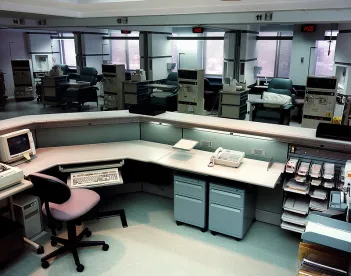The Federal Trade Commission (“FTC”) and the state of Pennsylvania have two weeks to persuade the Court of Appeals for the Third Circuit that the pending merger of Penn State Hershey Medical Center (“Hershey”) and Pinnacle Health System (“Pinnacle”) is anticompetitive. The FTC’s request for a preliminary injunction against the pending merger was denied on Monday by the U.S. District Court for the Middle District of Pennsylvania which found that the deal was likely to benefit patients. FTC v. Penn State Hershey Medical Center, 1:15-cv-02362 (M.D. Penn May 9, 2016). On Tuesday, the government filed a motion in the district court seeking an injunction enjoining the proposed merger pending an emergency appeal to the Third Circuit.
Pursuant to a December stipulated temporary restraining order (“TRO”), the hospitals are entitled to consummate the merger within three business days following a ruling denying the preliminary injunction. Thus, under that TRO, the merger could have closed today. In their opposition to the FTC’s motion for an injunction pending appeal, the hospitals indicated that they would not oppose a two week extension of the TRO if the government filed for an injunction with the Third Circuit. The FTC filed its emergency appeal and the district court granted the two week extension, setting the new TRO expiration date to May 27. The hospitals’ response to the emergency motion is due Wednesday May 18th.
The FTC’s emergency appeal to the Third Circuit argues that “[t]he merger will eliminate hospital competition in the area surrounding Harrisburg, Pennsylvania” and that the merged entity “will control nearly 80% of the market in that area.” The FTC further alleged that the hospitals’ “dominance will increase their bargaining power over insurance companies and enable them to raise rates and forego improvements in patient care and service.” Arguing that the district court ignored the economic reality of the health care marketplace and erred in holding that the government failed to properly define the relevant geographic market, the FTC articulated a list of irreparable harms that would occur if the injunction is not granted, including: the sharing of sensitive pricing strategies between the hospitals, the laying off of employees, and the consolidation of services.
The district court’s decision earlier this week was a significant blow to the FTC’s position—and prior wins in other cases—that the Affordable Care Act and other changes in the health care landscape do not create a free pass for provider consolidation. The Third Circuit will now assess whether the lower court correctly analyzed the relevant geographic market at issue here—a battle that the FTC has frequently struggled with in the past. Also of particular interest, and potentially impacting health care merger cases beyond this one, will be whether the Third Circuit agrees with the district court’s assessment that the “federal government under which the FTC operates has created a climate that virtually compels institutions to seek alliances such as the Hospitals intend here.”




 />i
/>i

